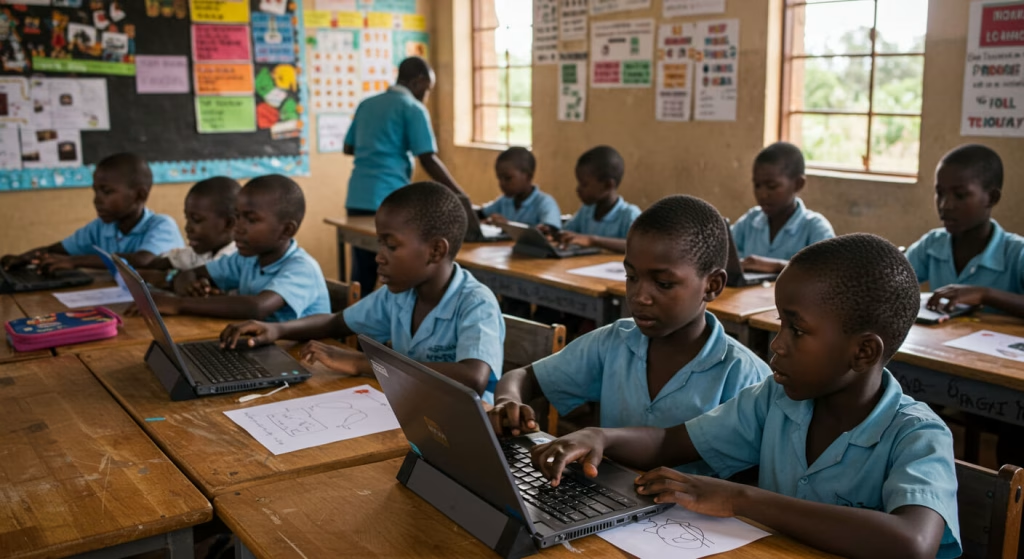
Why AI Skills Matter for Kids, Even in Primary School
In today’s fast-changing world, digital skills are no longer optional, they are essential.
As artificial intelligence (AI) continues to reshape industries, economies, and everyday life, one question keeps coming up: should children learn about AI this early?
At AI in Africa, our answer is simple YES!. In fact, the earlier, the better.
Why Early Exposure to AI Makes Sense
The idea that AI is “too complex” for children is one of the biggest myths holding many parents and educators back.
But just like reading, math, or learning a new language, AI can be introduced in age-appropriate ways.
You are not teaching children to build robots or code neural networks in primary school. Instead, you are helping them develop the foundational skills that AI thrives on critical thinking, pattern recognition, creativity, and logical reasoning.
Children are naturally curious.
They ask questions, explore patterns, and love experimenting.
These are the same skills that AI literacy builds.
For example, when a child uses a tool like Google’s Teachable Machine to train a computer to recognize different sounds or gestures, they are learning how machines “think” and make decisions. That is a powerful concept even for a seven-year-old.
African Examples That Make It Real
Let us take this closer to home.
In Nigeria, a group of children in a holiday workshop used Scratch, a drag-and-drop programming tool, to create a simple storytelling game.
They used local names, Nigerian cityscapes, and everyday situations.
In that process, they not only learned how to organize their thoughts, but also how to bring their ideas to life using technology.
In Kenya, a teacher used voice assistants in Swahili to teach children how computers can “listen” and respond to instructions.
The students were amazed—and more importantly, engaged.
They started asking deeper questions:
- How does it work?
- Can I teach it new words?
- What else can it do?
That curiosity is the gateway to tech confidence.
These are not futuristic dreams. These are happening now. Across Africa, children are proving that they can learn and create with AI when given the right tools and support.
The Long-Term Advantage
Children who learn about AI early grow up with confidence around technology.
They are not afraid of it, they see it as a tool they can control and use creatively. This matters because the future workforce will not just be using AI tools, they will be expected to understand them.
Introducing AI in primary school helps bridge the digital divide before it becomes a gap.
It opens up opportunities for future careers in science, technology, engineering, arts, and mathematics (STEAM). It also encourages problem-solving and teamwork, qualities that are valuable in any field.
Moreover, starting early helps level the playing field. If African children are to compete globally, they need access to these skills as early as possible not as an afterthought, but as a core part of their education.
Breaking the Myth: It Is Not Too Early
Skeptics often worry that tech exposure is harmful or that kids are too young to understand. The truth is, with guided, intentional learning, children benefit from tech—not suffer from it.
We are not suggesting screen time for the sake of it. We are promoting active, creative engagement with technology.
There is a world of difference between a child passively watching videos and a child using DALL·E to turn their drawing into a digital artwork, or creating a quiz on Scratch about African animals.
When children see that technology can amplify their ideas, solve real problems, and reflect their culture, they become not just consumers, but creators.
Start Your Child’s Journey Today
The world is not waiting. AI is already here, shaping the way we live and work. If we want African children to thrive in this future, we must start preparing them now. It is not too early. It is the perfect time.
Start your child’s journey today, explore our beginner-friendly AI programs.
Download our Free E-Book “Artificial Intelligence for everyday Africans”

Founder, Artificial Intelligence in Africa


